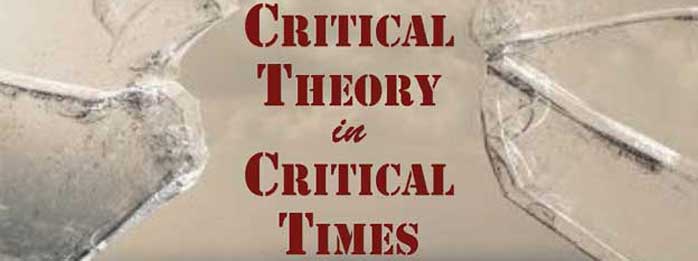
Critical Theory in Critical Times Annual Workshop
The Critical Theory in Critical Times annual workshop series is a joint initiative of the Center for Global Culture and Communication (CGCC) and the Critical Theory Cluster. The aim of this workshop series is to create a forum for discussion of recently published work in the tradition of critical theory broadly construed. Authors are invited to an in-depth discussion of their scholarly work with specialists in the field and in a small workshop setting. This setting offers an excellent opportunity to faculty and students of the Northwestern community to directly engage in lively discussion with very distinguished critical theorists from around the world. In preparation of the workshop, a reading session is organized among interested NU faculty and students to discuss the work in question.
2025-2026 Critical theory in critical times Workshop
Progress and Regression, a discussion With Rahel Jaeggi
Friday, October 10, 2025
3:30pm - 7:30pm CST
Location: TGS Commons, 2122 Sheridan Rd rm #140
The 2025 Critical Theory in Critical Times annual series workshop focuses around the work of Rahel Jaeggi, Professor of Practical Philosophy with an emphasis on Social and Political Philosophy and director of the Center for Humanities and Social Change Berlin at the Humboldt-Universität zu Berlin, and her 2025 book, Progress and Regression (Harvard University Press).
In her new book, Rahel Jaeggi defends the conceptual pairing of progress and regression as an indispensable socio-philosophical tool for critiquing the contemporary era. She views phenomena as progressive or regressive not only based on their outcomes, but on the forms of the social transformations themselves. By interrogating how regressive tendencies are enabled by experiential blockages that impede our ability to learn from past mistakes, Jaeggi develops a concept of progress that avoids Eurocentric distortions as well as the idea of the inevitability of progressive developments. Progress, Jaeggi shows, is not a path toward a predetermined goal but a never-ending process of emancipation.
Reading Group Information
We invite faculty and graduate students to participate in a reading group on Tuesday October 7th, in advance of the October 10, 2025 workshop. A copy of the book will be available to participants. If you would like to participate, please contact Critical Theory Graduate Assistant Micol Bez (MicolBez2027@u.northwestern.edu).
